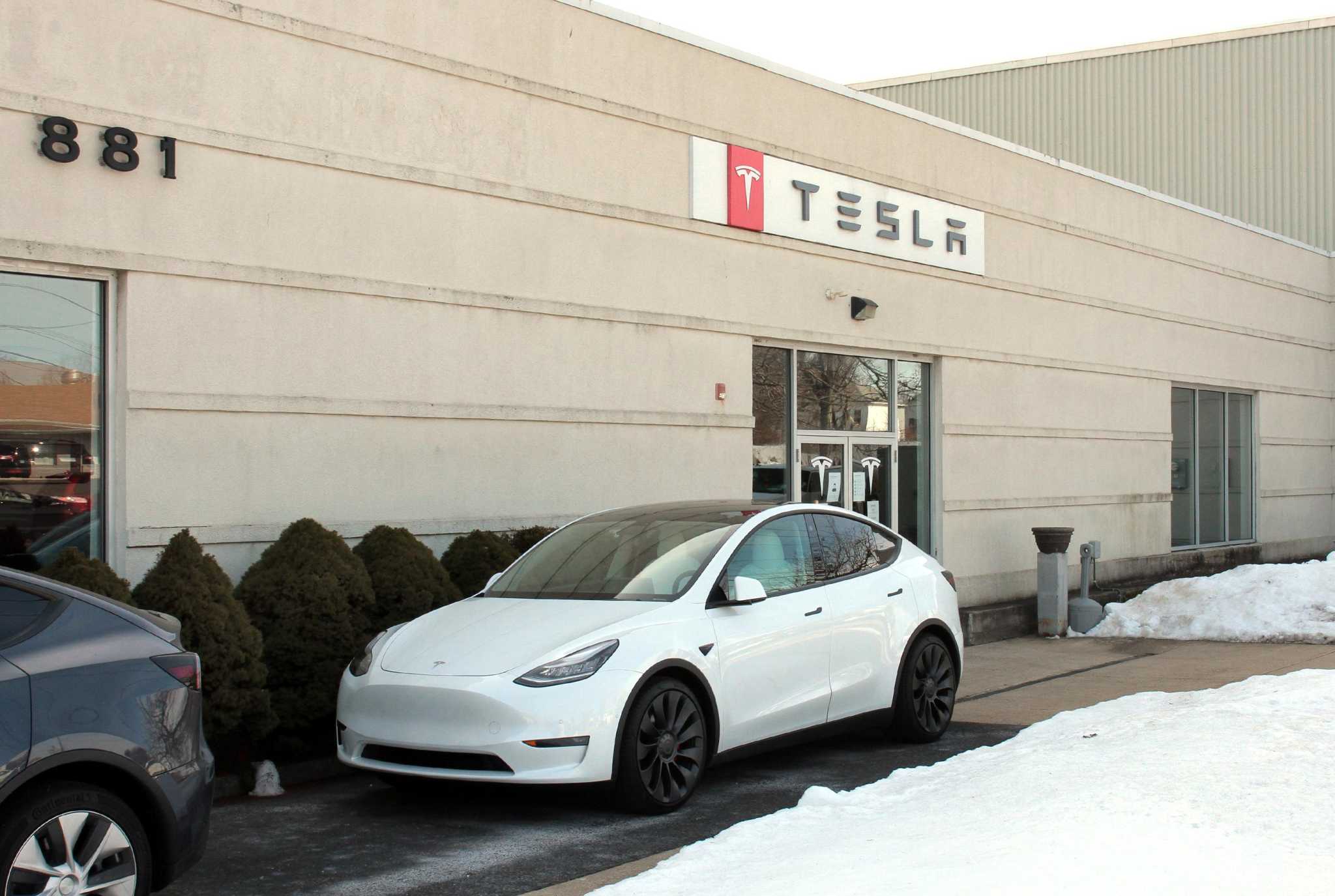Car Dealerships Step Up Opposition To Electric Vehicle Regulations

Table of Contents
Financial Concerns Driving Opposition
Electric vehicle regulations are significantly impacting car dealerships' profitability. The shift to EVs presents a complex financial challenge, impacting various aspects of their business model. This is leading to considerable opposition to the speed and nature of these regulations.
-
Reduced profit margins on EV sales: Compared to internal combustion engine (ICE) vehicles, EV sales often yield lower profit margins for dealerships. This is due to factors such as lower service revenue and potentially higher upfront investment costs for dealerships.
-
Significant investment in EV infrastructure: Dealerships need to invest heavily in charging infrastructure to service and sell EVs effectively. Installing and maintaining fast-charging stations represents a considerable capital expenditure, which many dealerships may struggle to accommodate, especially smaller businesses.
-
Loss of maintenance revenue: EVs require significantly less maintenance than ICE vehicles, impacting a major revenue stream for dealerships. The reduced need for oil changes, spark plug replacements, and other regular maintenance tasks directly impacts dealership profits.
-
Uncertainty surrounding long-term viability: The rapid pace of change in the EV market introduces significant uncertainty. Dealerships are unsure about the future demand for their services and the long-term viability of their current business models in a predominantly electric landscape. This uncertainty fuels opposition to regulations that accelerate this transition.
Concerns Regarding Government Regulations and Mandates
Government mandates and quotas for EV sales are another significant source of opposition from car dealerships. The rapid implementation of these regulations presents several challenges.
-
Rapidly changing regulations: The frequent changes in government regulations create uncertainty and make long-term strategic planning difficult. This lack of predictability makes it challenging for dealerships to invest in the necessary infrastructure and training.
-
Strict EV sales quotas: Strict quotas put undue pressure on dealerships, particularly those located in areas with lower EV adoption rates or limited charging infrastructure. This creates an uneven playing field and disproportionately affects certain regions and dealerships.
-
High cost of compliance: Meeting the requirements of increasingly stringent regulations involves significant costs for dealerships. These costs include updating facilities, training staff, and acquiring specialized equipment, placing an additional financial burden on businesses already facing reduced profit margins.
-
Lack of dealer voice in policy making: Dealerships feel their concerns and practical challenges are not adequately addressed in the policy-making process, leading to frustration and increased opposition. Increased lobbying efforts by dealership associations are a direct response to this perceived lack of representation.
The Impact on Consumers and the Transition to EVs
The opposition to electric vehicle regulations also raises concerns about its impact on consumers and the overall transition to EVs.
-
Limited consumer choice and increased prices: Aggressive regulations could potentially limit consumer choice and push up vehicle prices, particularly for those who cannot afford EVs or prefer ICE vehicles. The focus on EV mandates may stifle innovation in alternative fuel technologies.
-
Need for improved EV charging infrastructure: Widespread EV adoption requires a robust and accessible charging infrastructure. The current infrastructure is inadequate in many areas, particularly rural regions. This gap needs to be addressed to ensure consumer confidence and smooth transition.
-
Addressing consumer anxieties: Many consumers have concerns about range anxiety and charging times. These anxieties must be addressed through education, improved charging infrastructure, and the development of vehicles with increased range and faster charging capabilities.
-
Balancing rapid transition with market realities: The push for rapid EV adoption needs to be balanced with the realistic conditions of the market and consumer needs. A phased approach, which takes into account the practical challenges and concerns of all stakeholders, may be more effective.
The Role of Existing Infrastructure
A key element fueling dealership opposition is the inadequate existing charging infrastructure.
-
Inadequate charging stations: The number of publicly available charging stations is insufficient to support widespread EV adoption, particularly outside urban areas. This lack of infrastructure creates range anxiety among potential EV buyers.
-
Limited grid capacity: The existing electricity grid may not have the capacity to handle a massive surge in EV charging demand. Significant investment in grid upgrades is necessary to support large-scale EV adoption.
-
Unequal access to charging infrastructure: The distribution of charging stations is uneven, with many rural areas lagging behind urban centers. This unequal access exacerbates concerns about equitable EV transition and fuels opposition to regulations that do not address this disparity.
Conclusion
This article has examined the growing opposition from car dealerships to electric vehicle regulations, highlighting the financial burdens, regulatory challenges, and implications for consumer adoption. The opposition arises from legitimate concerns regarding profitability, market viability, and the need for realistic, consumer-centric policies. A collaborative approach involving government, industry stakeholders, and consumers is vital to address these concerns around electric vehicle regulations and ensure a smooth and sustainable transition to a greener automotive future. Continued open dialogue and a commitment to understanding the multifaceted challenges are crucial for navigating the complexities of electric vehicle regulations and facilitating the widespread acceptance of electric vehicles.

Featured Posts
-
 Rekord Grettski N Kh L Obnovila Prognoz Na Dostizhenie Ovechkinym
Apr 30, 2025
Rekord Grettski N Kh L Obnovila Prognoz Na Dostizhenie Ovechkinym
Apr 30, 2025 -
 Coronation Street Departure Actor Announces International Career Move
Apr 30, 2025
Coronation Street Departure Actor Announces International Career Move
Apr 30, 2025 -
 Rodon Leads Yankees To Victory In Series Finale Against Cleveland Guardians
Apr 30, 2025
Rodon Leads Yankees To Victory In Series Finale Against Cleveland Guardians
Apr 30, 2025 -
 Cavs Week 16 Analysis Examining The Trade And Its Implications
Apr 30, 2025
Cavs Week 16 Analysis Examining The Trade And Its Implications
Apr 30, 2025 -
 Prosecutorial Misconduct Alleged In Cardinal Trial New Evidence Presented
Apr 30, 2025
Prosecutorial Misconduct Alleged In Cardinal Trial New Evidence Presented
Apr 30, 2025
